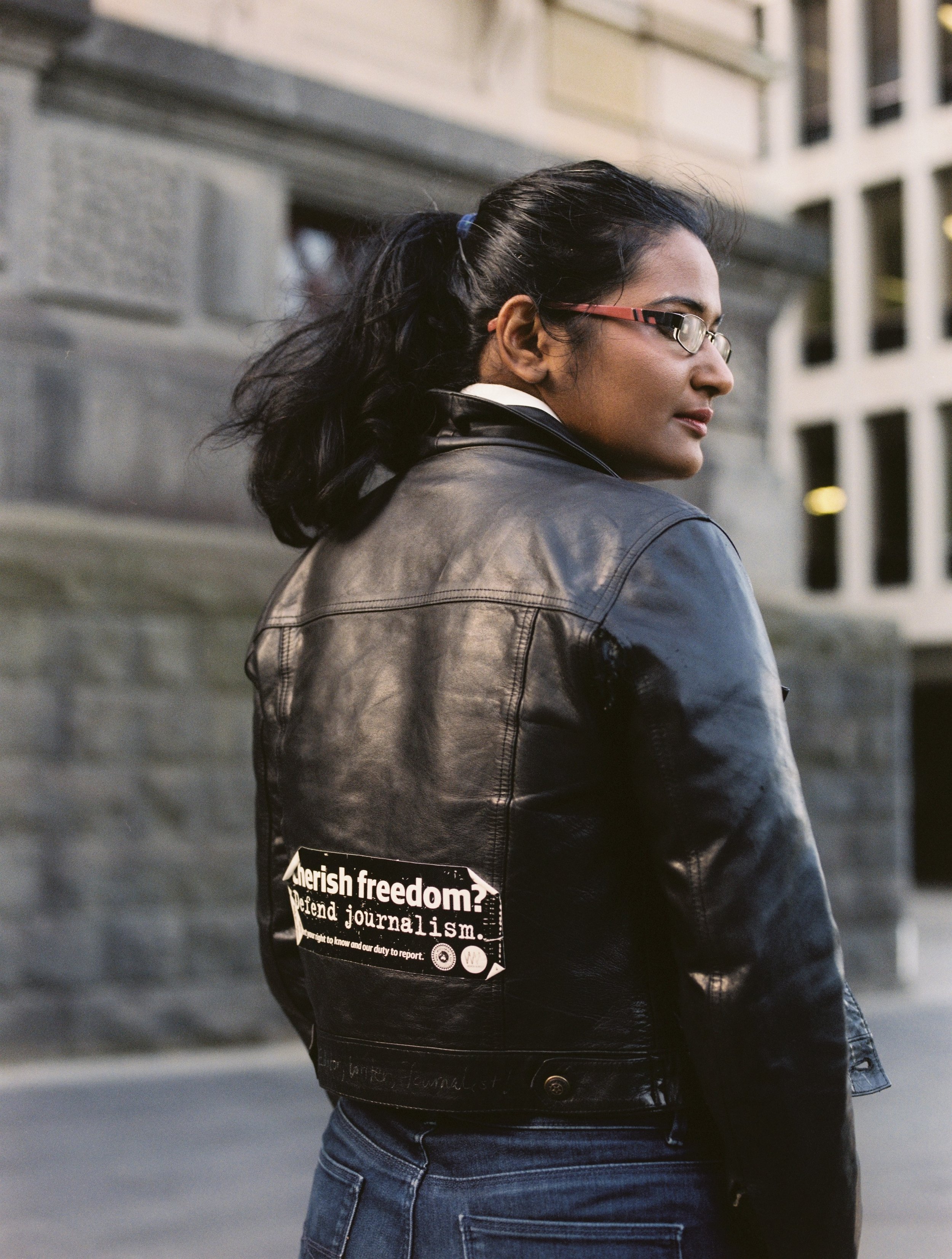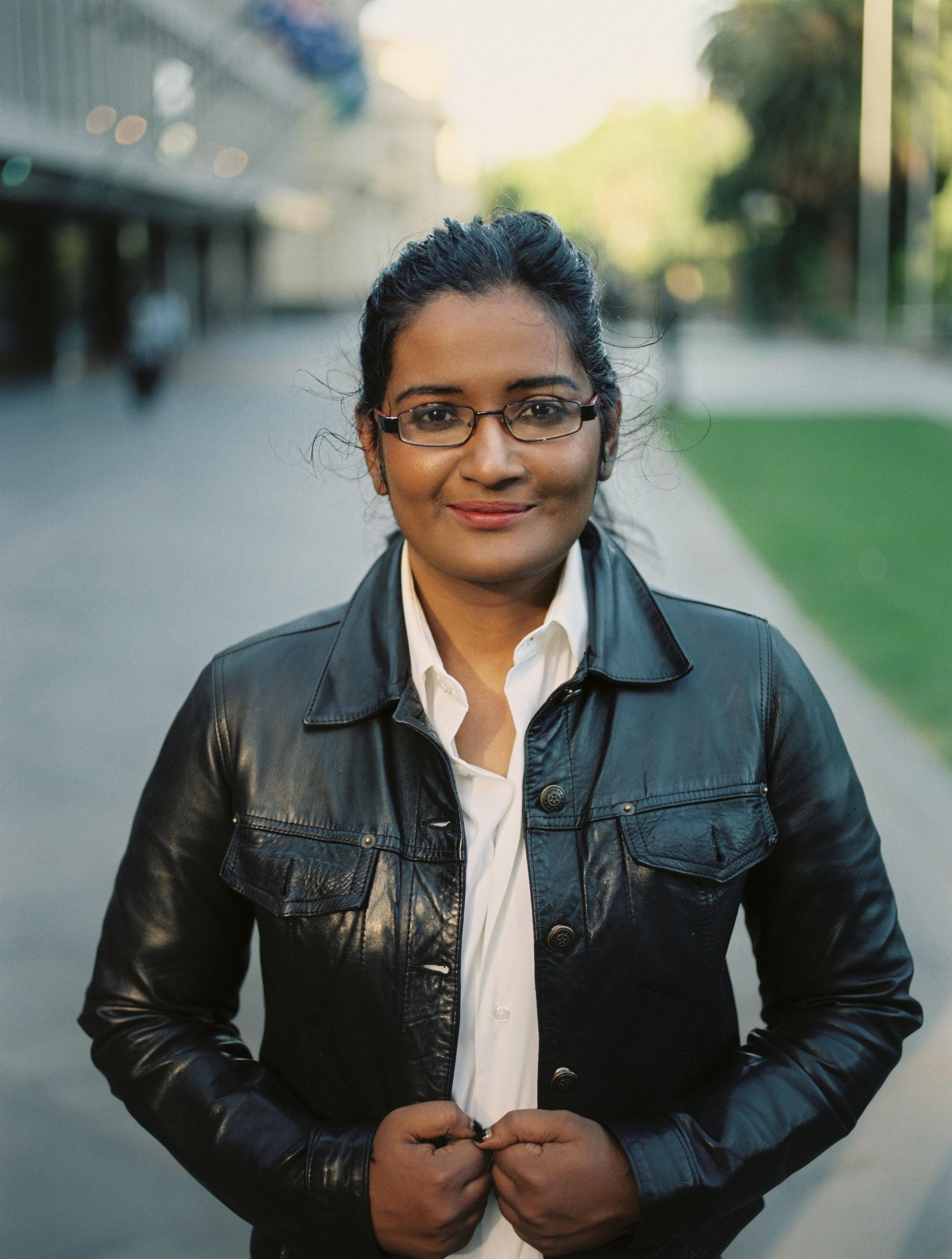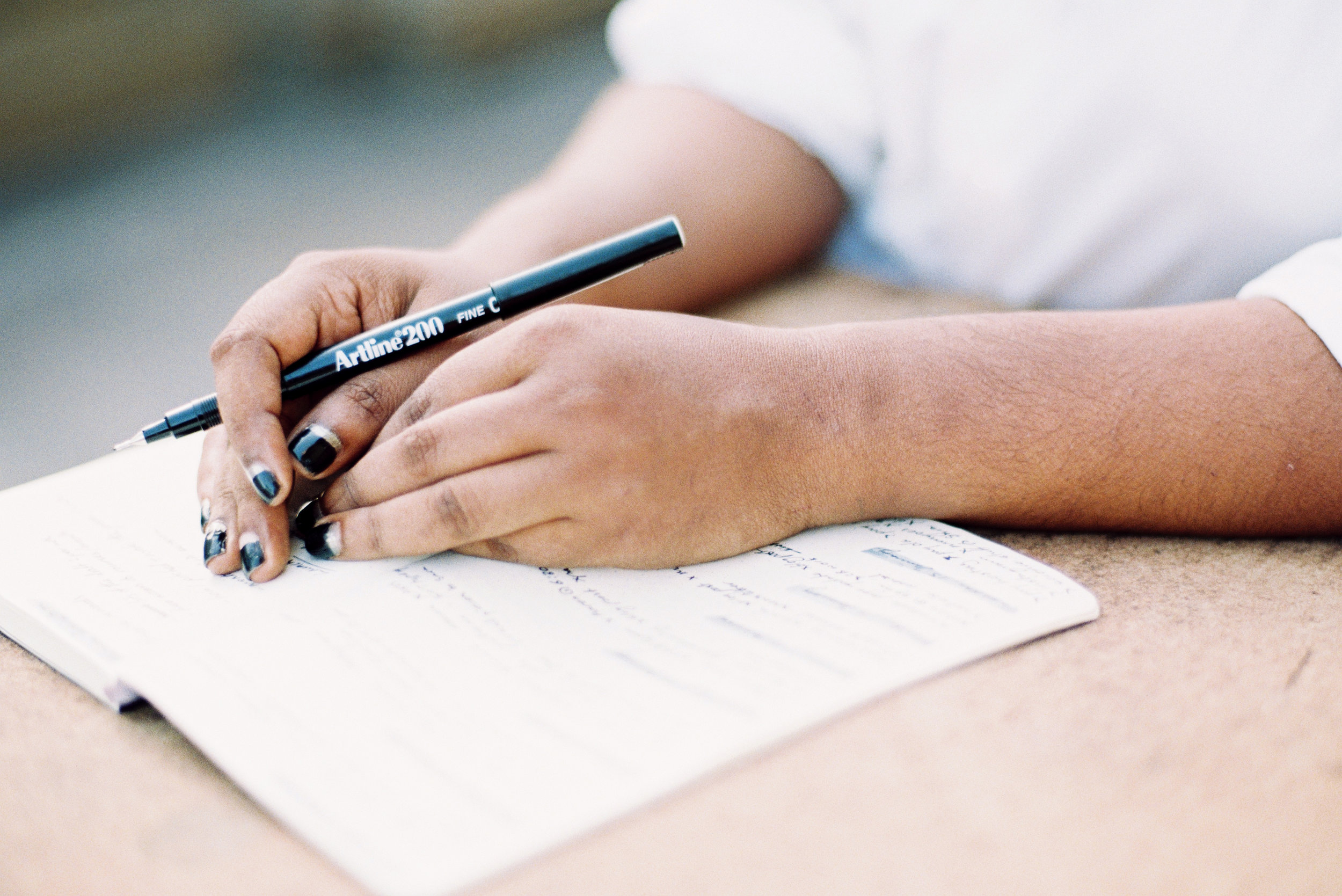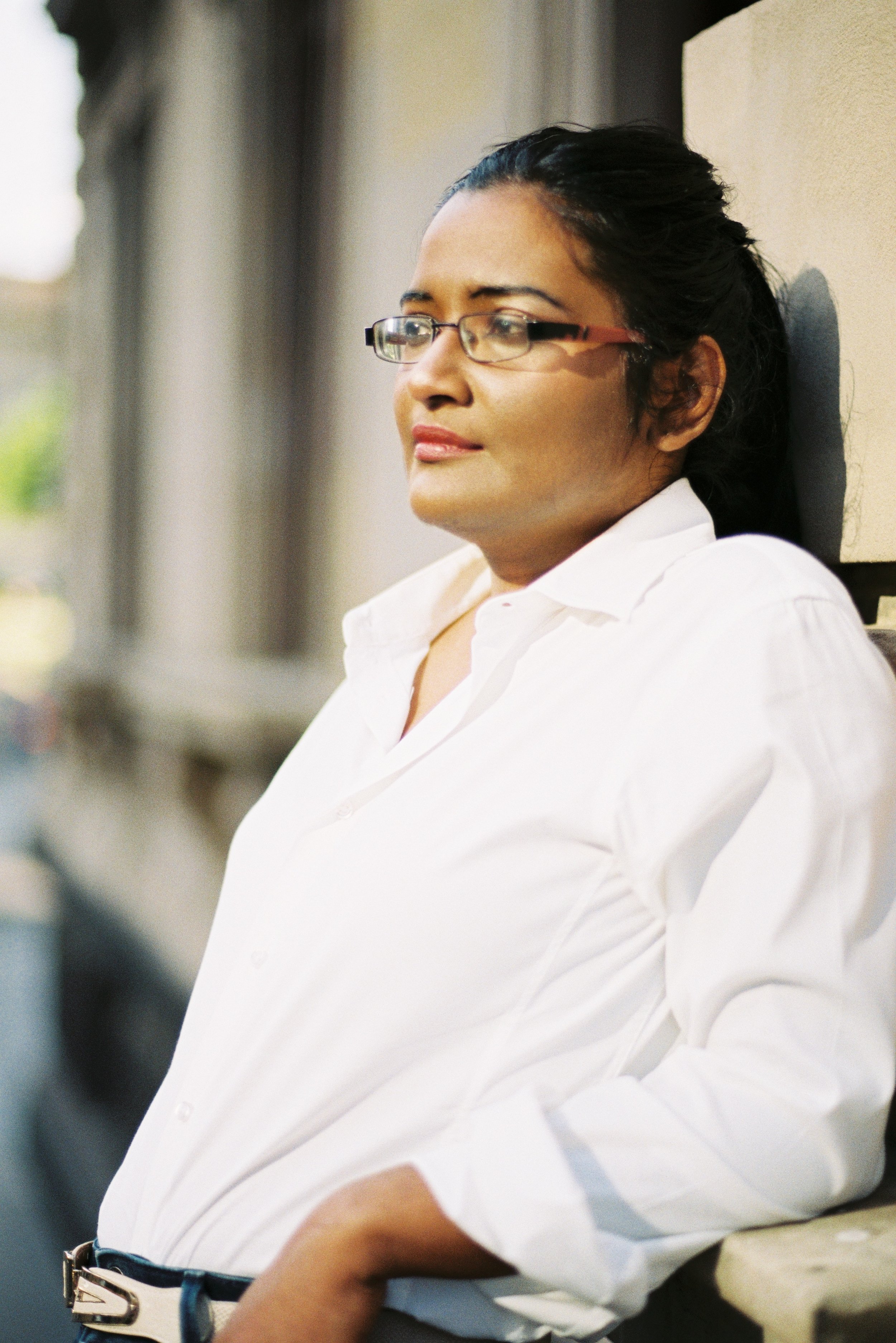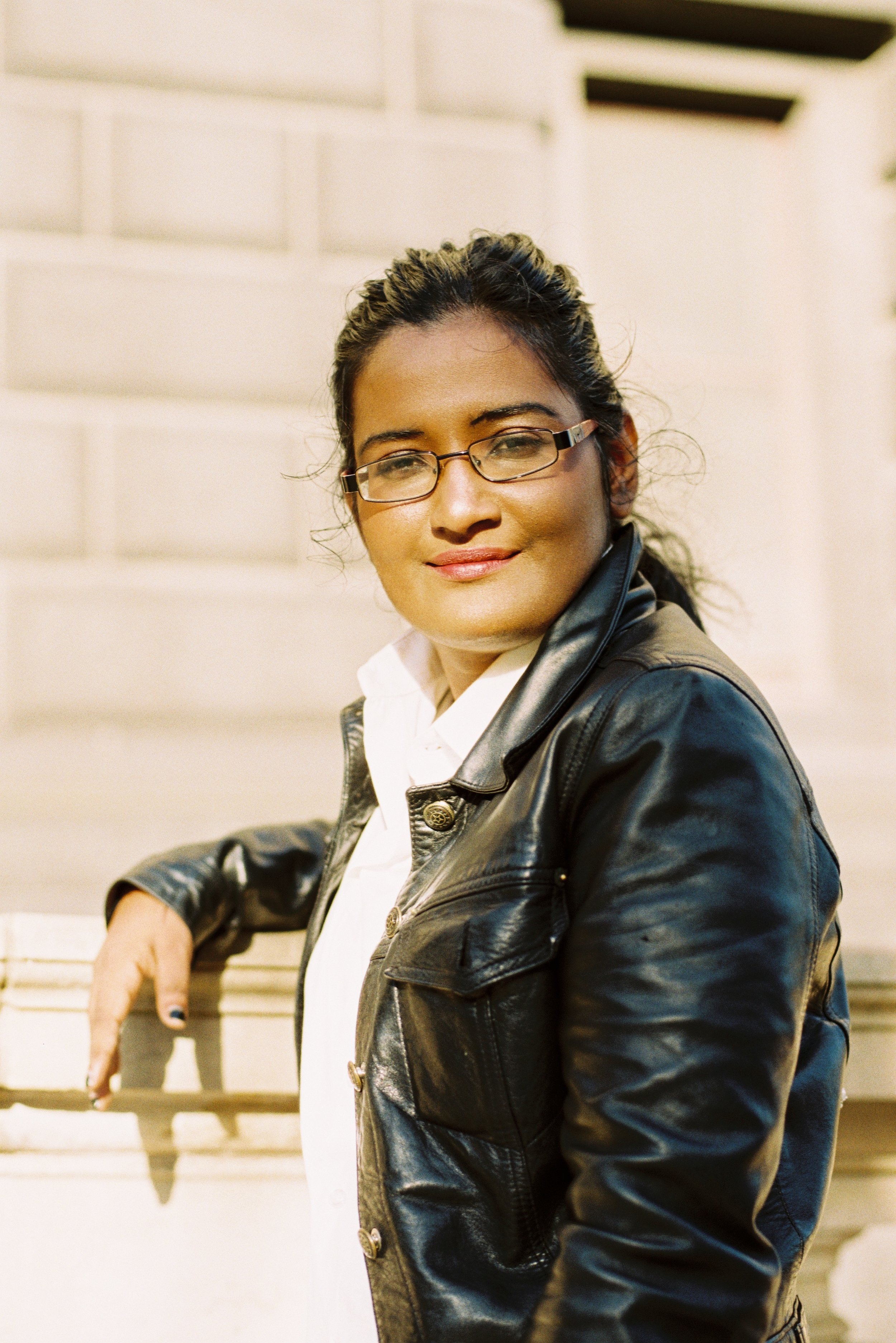Interview #102 — Marisa Wikramanayake
by Devana Senanayake
Marisa Wikramanayake is a Sri Lankan born author, editor and journalist. She published her first book at 17.
She has also edited books for authors like Amanda Jay. Marisa also advocates for freelancers and culturally and linguistically diverse creatives at MEAA. In 2018, she received the inaugural Katherine Susannah Pritchard-Varuna Foundation Fellowship.
Marisa Wickramanayake spoke to Devana Senanayake about journalism, online publishing and institutionalised help for creatives.
What steps did you take to become a published poet (and also a prize nominated poet) at just 17 years old?
I wrote everything, scribbled everything. I remember writing this 400 page story that wasn't really a novel but more episodic [in nature]. I was observing a lot and critiquing it. I was really interested in stories and what made people tick.
My mother noticed that I was spending a lot of time staying up at night and writing this 400 page fan fiction story and she said “Let's put it together and print it in a book. Let's do something with it.”
I didn’t want to print the story so I put together a collection of poetry instead. My mother found a printer, we checked out the manuscript and I presented it to my principal who was also an author and she wanted to write a foreword for it. I went along with my mother's plan and she entered into Michael Ondaatje's Gratiaen Awards. I duly went along to a shortlist announcement and I was a bit shocked that I was in the shortlist.
I didn’t ended up winning but there were copies printed. For a while there were copies in a bookstore in Colombo on the shelves - I have about four copies left. But that was how it happened.
You penned a column for the “Sunday Leader” paper during your time in university. What did you learn out of this experience?
I learned not to write for free and learned to deal with being edited. I had to learn to motivate myself to do it. They never assigned me a more specific topic so I had to also learn to come up with something to write. I often missed deadlines and felt horrible about doing so. If I could do it again now, I would be so much better at it. I also realised that I desperately wanted to keep some things private. I lived with my partner at the time and I had to split him into two people (housemate and boyfriend) when I wrote about things he had done.
It is so common to find friends online these days— I met you in an online group! But you started writing quite early—what was it like finding community through fan fiction in the internet’s early days?
It was hard. You had to use MSN or AOL, or you would find chat rooms pertaining to your interests and for quite some time I was like, Where is the one for just really good friends? It was better when I started blogging on Xanga in 1998. I had that blog for years. It had 1000 people following it. There was real community there and now we have a former Xanga group on Facebook as well. I miss all those people. I met a few Sri Lankans through it and MSN. I have one friend in LA who works in the tech industry. We have always made sure we were friends on all the platforms and he even sent me a birthday gift once.
What elements of your education have influenced your career and occupation today?
I grew up very privileged and upper middle class. I had a lot of opportunities and the best education options I could get. Sometimes here [in Australia], people judge you. They assume you would not know things. It is gratifying at times to make them check their assumptions about what I do know and to surprise them. But I also think a journalist should know a lot about international politics and the way the world works as well as what is happening in their own backyard. I think we need to know and care about what is happening elsewhere too and how it will affect us. We don't do enough of that here I think.
But I was also taught to critically think—perhaps more through family than school. I can think on my feet and I can solve problems.
I learned not to write for free and learned to deal with being edited.
What are the main struggles of being a freelance journalist and editor in Australia today?
There are so many struggles. One is plagiarism of your work, which happens often. Ginger Gorman has gone through this and so has Ruby Hamad.
Another is finding places that will pay you adequately. I think often until you freelance yourself you don’t understand how precarious it can be, moneywise. To run a business as a freelancer, you have to do the marketing, sales, accounting all of that as well as the writing. Sometimes, places don’t pay you or pay you on time which messes up everything. Freelancers in Australia band together and pass around information and help each other a lot in order to get over this.
Then you have to sort out super and long service leave and tax. That has to come out of your rate. Often, you don’t get to set your rate, you have to take what the organisation offers.
What was the media industry back home in Sri Lanka like?
Though I was a columnist, I was not paid so I can’t really tell how difficult it would be to freelance but I understand you have to build up a reputation first.
I have worked as an editor with Sri Lankan clients and I have to charge them a rate that works for them in their context. Even in-house pay rates need to improve. The way people are treated varies from place to place but in some places they are not treated well so that needs to change. I think we need training for younger [journalists] because often there isn’t the time or space within the office to do so. For some people that is ok, you can be thrown in the deep end and learn on the go.
At a broadcasting station, journalists in Sri Lanka will churn out three stories every half hour and script audio and video over a twelve hour shift. They work hard in Sri Lanka and I have not seen that same pace here.
I know a deputy editor [Marianne David] whose fingers literally fly across the keyboard when she subs copy and I want to be that fast one day!
As a journalist from Sri Lanka, can you recall some of the dangers and obstacles you encountered in the industry?
During the civil war bomb blasts and curfews— as a reporter, I knew that there were things we could and could not say when we wrote our stories. There are other small things like always travelling together, always getting scanned to go into events and always carrying ID around. My father was media director for YES FM and the studios were shot up and then Lasantha Wickrematunge, who was Editor-In-Chief at Sunday Leader, the paper I was writing my column for, was assassinated.
We have over twenty or so journalists who are dead or missing that we want answers for. Most of that happened during the civil war period but we want answers and justice regardless. So press freedom is an issue.
At another level, journalism is not always seen favorably and I think we need journalists who aren’t getting their heads turned by fame. We need more people who care about the story and the truth of what they are investigating and how you go about doing that ethically. We get people who want that result but may not know how to do it or may not be supported to do so because maybe their employers or managers. We need to pay them better too. I think there can also be a lot of sexism and classism sometimes. In Sri Lanka, people at least let you have a go at things and you can prove yourself.
I think often until you freelance yourself you don’t understand how precarious it can be, moneywise. To run a business as a freelancer, you have to do the marketing, sales, accounting all of that as well as the writing.
You recently won the Katherine Susannah Pritchard Writers Center and Varuna Writers Center Inaugural Foundation Fellowship. What more can governments do to support creatives?
I think first off the government needs to stop messing about with copyright and parallel importation laws and be proud of the sort of cultural work that Australian artists can create and defend it and support it. I also think there has to be more diversity in organisations, especially government organisations and on the boards of organisations. We need a treaty and we need mandatory inclusion of indigenous voices in decision making about the arts and funding and opportunities at all levels.
We need more opportunities (like The Next Chapter) where people are supported while they work on a writing project. If we want to support diversity then we need to make sure we have blind submissions, diverse judging and diverse selection committees. If we want to get rid of barriers to access, let's not create them in the first place.
We need more grants but we also need more assistance with figuring out how to apply for them and what is most suited.
Residencies and mentorships are helpful but they also cannot be totally out of reach either. Sometimes you can win a residency but sometimes they are only partially subsidized so you have to pay a bit to take them on.
Mentorships are sometimes won but most often paid and all of this leaves these opportunities out of reach for those who don’t have the finances to put money towards them. Sometimes you have to travel to take advantage of them and that costs money too.
What part do you play at the Media, Entertainment and Arts Alliance (MEAA)? What help can the body provide to young journalists?
If you work for a company there is usually one or several employees in the workplace who are your union delegates—they basically answer questions about the union and help organise things. If people have questions about the union, they can ask us and we keep them in the loop whether they are members or not. I have helped people resolve membership issues; sort out payment stuff; told them what their rights are and who to go to.
Now the union can help journalists in-house at companies because it can go in to help negotiate their enterprise bargaining agreement on their behalf with their employer and sort out pay rises and conditions.
With freelancers, it is a bit different. The union can currently legally only do one-on-one advice in terms of helping them with contracts and payment issues with clients and copyright. However, the union cannot negotiate with employers for a group of freelancers like it can for a group of employees because the Fair Work Act doesn’t allow that.
If there are issues like harassment and stuff the union can assist people with regardless of whether they are freelancing or not. The Fair Work Act means everyone has a right to a safe workplace so if those sorts of things are happening, the union can help you seek assistance and advise you.
But your biggest benefit is meeting and chatting to people like me because you meet so many people in the industry through the union and you get to learn so much. Fran Molloy is a treasure and Ginger Gorman is a sweetheart. Jane Canaway is funny. Chat to us!
During the civil war bomb blasts and curfews— as a reporter, I knew that there were things we could and could not say when we wrote our stories.
Do you have any advice for emerging journalists?
Learn your rights. Join your union. Freelance till you get a job so you can learn and have empathy for those who freelance. You may need those skills one day. Pitch everywhere and outside Australia if you freelance. Try to find work that pays you fifty cents per word if you can. Get an ABN so no one can withhold pay.
Keep learning throughout your life and stay curious. There is a code of ethics and hate speech law and don’t play around with these. Be kind, genuinely kind. Don’t misrepresent people, especially people in groups you are not part of. Don’t be afraid to take on any kind of journalism work. You won’t always be able to choose what you do or want to do. You won’t always have that luxury. Don't wait till you graduate to start working. Start now.
Awards are not the be-all and end-all of journalism and neither is fame. Awards are nice to have and can open doors. At the same time you don’t want to work for people who only want to hire award winners because the judges of awards vary and sometimes the most obviously sensational entry wins. This does not necessarily mean it is good journalism or the best story. There is a lot of good work that doesn't win awards because there are only so many awards and employers are shooting themselves in the foot if they don't realise that when they hire people.
Who inspires you?
There’s no one. I don’t operate in that way. I cannot say that there has been anyone I have been inspired to be like. I enjoy reading about how a certain person may have tackled some part of their life but usually I do so because either I want to read about an adventure or I want to see if there is any information I can take and use. But there isn’t a person I wish to emulate in being or experience.
What are you listening to?
I listened to ska and reggae while writing Sedition.
Just now, Lord Rockingham’s XI playing Hoots Mon, Bad Manners, UB40, Jain’s Makeba and Janelle Monae. I love old school K-POP like Wonder Girls, 2NE1 and FinKL. Astrud Gilberto The Beatles, Mike and The Mechanics, Travelling Wilburys and Miriam Makeba songs [are some of my favourites]. I grew up with a lot of genres of music, new and old and it is all a mish mash.
Learn your rights.
Join your union.
What are you reading?
I just finished Mara Wilson’s Where Am I Now? and Sumudu Samarawickrema’s Utter The Thing which is amazing. Tale of Genji and I Am A Cat are my slow-going ones at the moment. I am currently reading Gillian Pollack’s book on the Middle Ages but I have Meet Me At The Intersection, Zoya Patel’s No Country Woman and Sisonke Msimang’s Always Another Country, too.
How do you practice self-care?
I love cooking so I grow my own things if I can and make my own food—I have a shelf of homemade and store bought kimchi in my fridge. I bake bread and make sorbet with fruit now rather than have ice cream. Each weekend if I can I run a bubble bath, read a book and eat fried eggs (I have a stand to balance it all on). Sometimes my partner and I take the whole weekend to drive out somewhere and see a part of the country we have not seen before. I annoy my cat and watch Korean shows like Hyori’s B & B. And sometimes, self-care just means turning my phone off.
What does being Asian-Australian mean to you?
I have never described myself that way. I usually say “Sri Lankan born, Australia based” or that “I am both Sri Lankan and Australian”. I am indelibly Sri Lankan because I grew up there, I can’t not be. But I am also part of Australia now. I am part of Australian society as a citizen.
What it means is that I know I am not seen as equal by a lot of people here. What it means is to have to listen to politicians have a go at people like me and people from other groups for no reason other than political advantage. What it means is having to undergo both overt and subtle harassment; the kind you can both point out and fight legally; and the kind you suspect you think is happening behind the scenes; and will never be able to prove but you are affected by.
I embrace being a person of colour. But I am also fundamentally Marisa and I don’t want people to label me by gender or race and then treat me differently. So I try to aim for people to just see me equally as Marisa but things are often unconsciously ingrained so it is hard. People want to see the differences.
I embrace being a person of colour. But I am also fundamentally Marisa and I don’t want people to label me by gender or race and then treat me differently.
Find out more
Interview by Devana Senanayake
Photographs by Hashem McAdam


